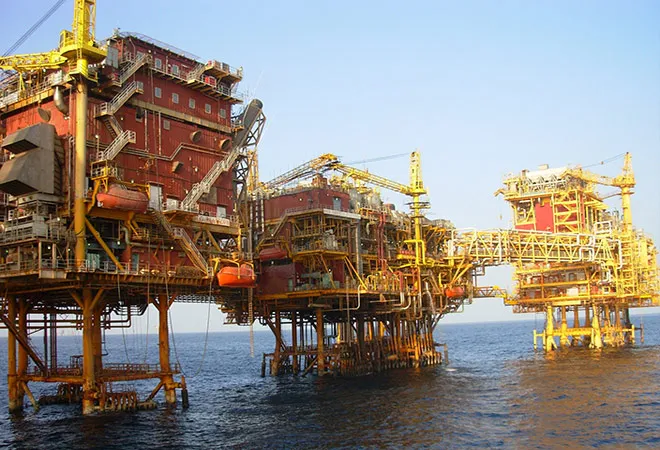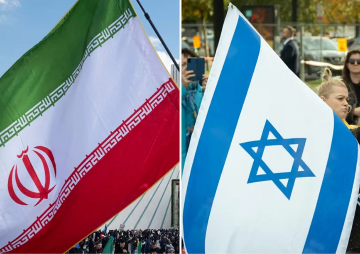
Myanmar is reportedly planning to open fresh bids for its oil and gas blocks to international companies. In the last few years, the Myanmar government has taken concrete steps to restructure its energy sector and has identified natural gas as an important component of its energy master plan.
This is a welcome development for India, which has substantial experience of operating in Myanmar’s energy sector. Besides, both India and Myanmar are keen to expand the scope of cooperation in the realm of energy sector. Earlier, though India could not secure the deal to build a gas pipeline from Myanmar to India’s eastern region, India has continued to remain engaged with the energy sector of its eastern neighbour. For instance, India has positioned itself as a key stakeholder in the China-Myanmar gas pipeline.
The indication of possible bidding rounds for energy blocks this year can provide an opportunity for India to leverage its experience of having operated in Myanmar for more than a decade. India now has a good understanding of the political economy of energy development and the nuances of decision making in Myanmar.
But having said that, India must be careful and not underestimate the regional complications that might impact India-Myanmar energy relations. The issue of Rohingya refugees has historically existed between Bangladesh and Myanmar, but the magnitude of the problem has substantially increased in recent years. Also, the possibility of gas trade between India and Myanmar would be contingent upon the “availability of surplus energy” with the latter, as argued by ORF researchers Anasua Basu Ray Chaudhury and Pratnashree Basu in their research paper.
The issue of Rohingya refugees, at least for now, may create complications for any possible trilateral pipeline between India, Bangladesh and Myanmar. Yet, if the possibility of building a trilateral pipeline project faces challenges, then India could fall back on the alternative route mentioned in a feasibility report by the Gas Authority of India Ltd. (GAIL) in 2006, which had envisaged constructing a bilateral pipeline between India and Myanmar via India’s north-eastern States. This alternative scenario in the current context must also explore the technical option of supplying natural gas to Bangladesh from the Indian side at a later stage. In his interview to Dhaka Tribune in 2017, Dr. Badrul Imam, Bangladesh’s energy expert, had noted that Dhaka should consider the option of sourcing any surplus natural gas from the Indian State of Tripura. However, in an ideal scenario, as argued by Dr. Mirza Sadaqat Huda, an energy expert based in Singapore, in 2013, it would make sense for India, Myanmar and Bangladesh to join hands for any future proposed trilateral gas pipeline to fulfill their energy and economic interests as well as strengthening political relations.
It also needs to be mentioned that during this author’s field work in Myanmar in the year 2015 for a South Asia Network of Economic Research Institutes (SANEI)-funded project on the theme of exploring prospects for cross-border electricity trade in South Asia for the National Institute of Advanced Studies (NIAS), Bengaluru, he noticed the keenness of the Myanmar government to invite western companies to operate in their hydrocarbon sector.
Another important issue that has historically played a key role in Myanmar’s energy export decision making is the factor of energy exports diversification. The country has already been supplying natural gas to two of its neighbours i.e. Thailand and China.
Perhaps in any future round of bidding for energy blocks, to strengthen its own energy export diversification strategy, Myanmar must consider exporting surplus gas to markets in India and Bangladesh. For instance, India has announced ambitious plans to increase the contribution of natural gas to 15 percent by 2030 in its energy mix. India’s network of domestic pipelines is being expanded to ensure availability of gas to more consumers in the transportation and domestic sectors. Similarly, appetite within Bangladesh for natural gas has also been rising consistently, but the country is constrained due to limited domestic production.
It would also be important to understand China’s current energy strategy in Myanmar. In its efforts to make a transition to natural gas in a major way, China’s appetite for natural gas is also increasing. Hence, it will not be surprising if China yet again competes in the proposed bidding rounds for energy blocks. Chinese companies, thus, may continue to provide a stiff competition to Indian companies in Myanmar’s energy sector.
For another reason too, the future bidding rounds in Myanmar may be different and competitive. The last round (2013-14) showed that the interest of foreign companies to invest in Myanmar’s energy sector was gradually increasing. So, the presence of foreign companies would make future bidding rounds more competitive for Indian companies. India must therefore explore a variety of arrangements such as going alone or joining hands with different foreign companies to undertake any future stakes in Myanmar and even for building a gas pipeline to India.
India must engage proactively with the Myanmar government and present a commercially viable case for a greater share in Myanmar’s energy development. It would be pertinent to note that cooperation in the energy sector, in the coming years, between India and Myanmar will only complement the current bilateral efforts underway in the realms of infrastructure development, connectivity and social development.
Therefore, to establish a firmer and sustainable presence in Myanmar’s energy sector, India must offer Myanmar a comprehensive package that encompasses Myanmar’s current and future needs, while simultaneously drawing benefits for its own energy plans.
The views expressed above belong to the author(s). ORF research and analyses now available on Telegram! Click here to access our curated content — blogs, longforms and interviews.




 PREV
PREV

